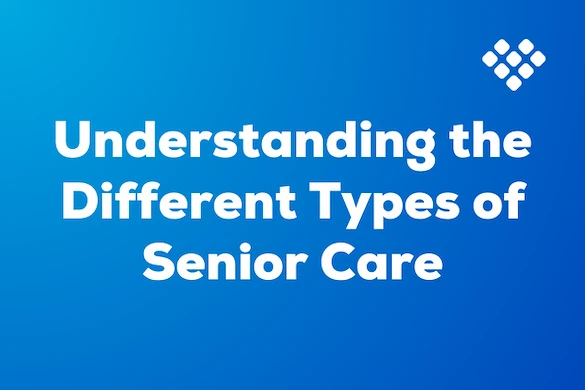The 5 Most Common Memory Care Myths
Debunk the top 5 most common myths within memory care and ensure you can make informed and intentional choices for your loved ones.

Memory care is a critical aspect of healthcare for individuals dealing with cognitive impairments, such as dementia and Alzheimer's disease. Despite its importance, there exist several myths surrounding memory care that can hinder a proper understanding of the challenges and needs of those living with memory-related conditions.
Key Takeaways



Myth 1: Memory Loss is a Normal Part of Aging
One of the most prevalent misconceptions is that memory loss is an inevitable consequence of aging. While some decline in memory function is normal as individuals grow older, severe memory impairment (such as Alzheimer's disease) is not a natural part of the aging process.
Dementia is a complex neurological disorder that involves more than just occasional forgetfulness. It affects cognition, behavior, and the ability to perform daily tasks. Recognizing the distinction between age-related memory changes and pathological memory disorders is crucial in providing appropriate care and support.
Myth 2: Memory Care is Only About Medication
The 2nd most common myth of memory care is that it primarily revolves around medication management. While medication can play a role in alleviating symptoms and slowing the progression of certain memory disorders, comprehensive memory care goes beyond pharmacological interventions.
Non-pharmacological approaches are integral components of memory care programs. These approaches include cognitive therapies, physical activities, art, music, and sensory stimulation.
Myth 3: Memory Care is Limited to Individuals with Advanced Dementia
Memory care is often associated with individuals in advanced stages of dementia, leaving the impression that it's not relevant for those in the early stages or with mild cognitive impairment. This is our 3rd myth of memory care and should be understood that it’s for those experiences many levels of memory issues
From early interventions to advanced care, memory care encompasses a spectrum of needs. Early diagnosis and intervention can significantly slow the progression of memory disorders and improve the efficacy of treatment strategies. Additionally, memory care programs can provide tailored support for individuals at different stages of cognitive decline, enhancing their autonomy and preserving their dignity.
Myth 4: Memory Care Facilities Are Institutions
Our fourth misconception involves a myth that memory care facilities are akin to cold, clinical institutions. In reality, modern memory care facilities prioritize creating a warm, home-like environment that promotes comfort and familiarity.
These facilities are designed to accommodate the unique needs of residents with memory impairments, with features such as secure outdoor spaces, easy-to-navigate layouts, and memory-enhancing cues. The goal is to provide a safe and engaging atmosphere that fosters social interaction and cognitive stimulation, thereby enhancing the overall quality of life for residents.
Myth 5: Memory Care Isolation is Inevitable
Some believe that individuals in memory care will inevitably become isolated from their communities and loved ones. However, to prove our 5th most common myth wrong, memory care professionals emphasize the importance of social engagement and maintaining connections.
Family involvement, visits from friends, and participation in group activities are essential for emotional well-being. Additionally, memory care facilities often organize outings and events that promote interaction and help residents stay connected to the outside world. By fostering connections, memory care providers aim to reduce feelings of loneliness and enhance the emotional resilience of those under their care.
Conclusion
Memory care is a complex and evolving field that requires a thorough understanding to provide effective support for individuals living with memory-related conditions such as Alzheimer’s and dementia. By debunking common memory care myths, families and caregivers can make more informed decisions and foster a compassionate, person-centered approach to care.
Recognizing that memory care involves tailored interventions, holistic therapies, and a strong commitment to improving quality of life is essential. With accurate information and awareness, we can better support those affected by cognitive impairments and help create a more inclusive, supportive environment for individuals and their families.
Find Memory Care
Senior Care Finder is committed to providing its comprehensive directory of memory care companies. Each memory care facility listing includes valuable information about memory care services, equipment that may be included in care, features and amenities, and more.


